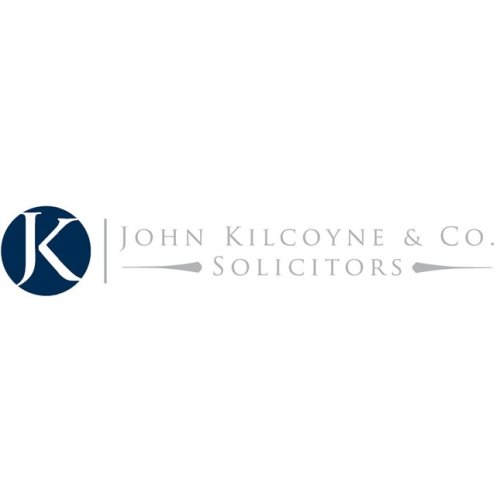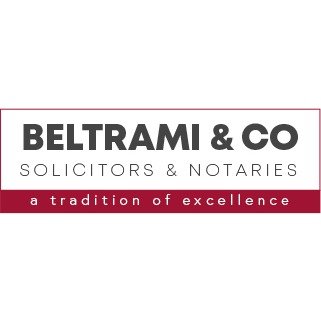Best ADR Mediation & Arbitration Lawyers in Glasgow
Share your needs with us, get contacted by law firms.
Free. Takes 2 min.
List of the best lawyers in Glasgow, United Kingdom
About ADR Mediation & Arbitration Law in Glasgow, United Kingdom
ADR Mediation and Arbitration, short for Alternative Dispute Resolution, are respected and often recommended methods of resolving disputes outside of the courtroom in Glasgow, United Kingdom. These procedures are prevalent due to their potential for saving both time and cost compared to traditional court proceedings. Encouraged by the Scottish civil justice system, parties are now often asked to attempt resolving their disputes via an ADR mechanism before they proceed to a full hearing or trial.
Why You May Need a Lawyer
While ADR Mediation and Arbitration are designed to be easier and more straightforward than formal court proceedings, the legalities surrounding these procedures can still be complex. A well-versed lawyer can guide you in understanding your rights, developing an effective negotiation strategy, and drafting agreements to ensure they're legally binding. They can also help you appreciate the pros and cons of each process and guide you towards the most appropriate method for your particular situation.
Local Laws Overview
In Glasgow, as well as the rest of Scotland, ADR Mediation and Arbitration are governed by several Act of Sederunts (Rules of the Court of Session), The Arbitration (Scotland) Act 2010, and the Civil Justice Council guidelines. Notably, confidentiality is a significant aspect in these alternative dispute resolution methods, protecting all discussions and proceedings from being disclosed unless all parties agree otherwise.
Frequently Asked Questions
1. What is the difference between mediation and arbitration?
Mediation is a process where a neutral third party, the mediator, facilitates discussions between disputing parties to help them reach a mutually agreed resolution. Arbitration, on the other hand, is a process where a neutral third-party, the arbitrator, hears both sides of the dispute and makes a decision that is binding on the parties involved.
2. Are mediation or arbitration decisions legally binding in Glasgow?
In mediation, the agreement reached is only legally binding when formalized in a written agreement signed by the parties. In arbitration, the arbitrator's decision, known as the 'award,' is legally binding and can be enforced in the same way as a court judgment.
3. Can I appeal an arbitrator’s decision?
Under the Arbitration (Scotland) Act 2010, appeal against an arbitrator’s decision is exceptionally limited and primarily focusing on points of law.
4. What kind of cases can be resolved by mediation or arbitration in Glasgow?
Most civil disputes, including commercial, property, family, and employment disputes, can be resolved through mediation or arbitration. However, for certain cases involving criminal matters or public policy issues, they must be resolved in court.
5. Can we switch to mediation or arbitration even if we’ve already started court proceedings?
Yes, parties involved in a dispute can anytime agree to switch to mediation or arbitration, even if court proceedings have already commenced.
Additional Resources
Dispute resolution institutions such as the Scottish Arbitration Centre or the UK Mediation Journal can provide more detailed information and guidance on ADR mediation and arbitration. The Scottish Civil Justice Council and the Scottish Courts provide governance and legal frameworks.
Next Steps
If you require legal assistance regarding ADR Mediation and Arbitration, the best course of action is to consult with a lawyer who specializes in this field. They can guide you through the process, safeguard your interests, and help you attain the best possible outcome. Remember to choose a legal practitioner with a proven track record in ADR and who has an impeccable understanding of Scotland's specific legal landscape.
Lawzana helps you find the best lawyers and law firms in Glasgow through a curated and pre-screened list of qualified legal professionals. Our platform offers rankings and detailed profiles of attorneys and law firms, allowing you to compare based on practice areas, including ADR Mediation & Arbitration , experience, and client feedback.
Each profile includes a description of the firm's areas of practice, client reviews, team members and partners, year of establishment, spoken languages, office locations, contact information, social media presence, and any published articles or resources. Most firms on our platform speak English and are experienced in both local and international legal matters.
Get a quote from top-rated law firms in Glasgow, United Kingdom — quickly, securely, and without unnecessary hassle.
Disclaimer:
The information provided on this page is for general informational purposes only and does not constitute legal advice. While we strive to ensure the accuracy and relevance of the content, legal information may change over time, and interpretations of the law can vary. You should always consult with a qualified legal professional for advice specific to your situation.
We disclaim all liability for actions taken or not taken based on the content of this page. If you believe any information is incorrect or outdated, please contact us, and we will review and update it where appropriate.














